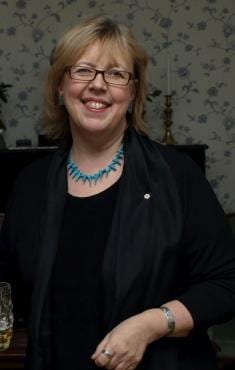Green Party leader Elizabeth May is unimpressed that the Conservative government has left the environment off the agenda for the G8 and G20 meetings coming up in June and has instead focused on a very narrow understanding of maternal and child health in the developing world.
“I think that some spin doctors over at Langevin thought ‘What would be a nice warm, fuzzy thing — like a blue sweater vest — to improve the Prime Minister’s ratings with the groups that don’t seem to warm to him, that would do well at the G8 and G20?'” May says. “And [they] thought maternal and child health…. They did this without thinking through the elements of any sensible agenda.”
May says that the debate’s focus on maternal and child health, while discounting access to legal and safe abortions for women in the developing world, misses the primary health care realities for those women. She’s also worried that NGOs that provide this care and advice are losing their government funding. She points to funding cuts at Match International, International Planned Parenthood and various women’s groups.
“So while Stephen Harper claims that he’s going forward to put maternal health and childcare on a top agenda item for Canada at the G8, we are cutting the funding to the Canadian NGOs that know how to deliver that assistance,” she says.
“These are very dark days for women or for any Canadian citizen who looks at our place in the world and wonders what are we saying to the rest of the world about what we care about.”
May says that the discussion over abortion in this country is polarizing and difficult to have.
“I know from experience, because my comments on abortion have been in the past distorted beyond recognition,” says May. “To make it really clear, I think the best way of describing this issue is the one summed up by former president Bill Clinton, who said abortions must be safe, legal and rare.”
May is also critical of other aspects of the government’s agenda. On the topic of the costs of the government’s tough-on-crime legislation, May is unequivocal.
“It’s not tough on crime,” says May, adding that there are better ways of addressing the issue. “Those billions of dollars are much better spent on early childhood education, alleviating poverty, ensuring that there’s programs that keep kids busy and active — a whole range of things that the tough-on-crime agenda doesn’t even begin to touch.”
May also levels criticism at the government over the “safe country of origin” provisions in the refugee reform bill. Critics are concerned that the “safe country” proposal will limit the appeal process for queer refugee claimants.
“We don’t think that there is such a thing as a safe country of origin,” says May. “If you have a credible case — and your case has to be tested — of legitimate concern for prosecution, for persecution, for your own safety, no matter what your country of origin is, if you don’t feel you can return there safely, then that case needs to be heard.”
And finally, on the topic of the cancellation of the Canadian HIV Vaccine Initiative (CHVI) production facility in Winnipeg, May is calling for the funding to be restored and the facility built.
“The science indicates that it’s needed, and certainly those are people that have a good track record,” says May. “It’s also a way of maintaining and keeping some of the best minds in Canada when that kind of research and that kind of production facility is located in Winnipeg.”


 Why you can trust Xtra
Why you can trust Xtra


